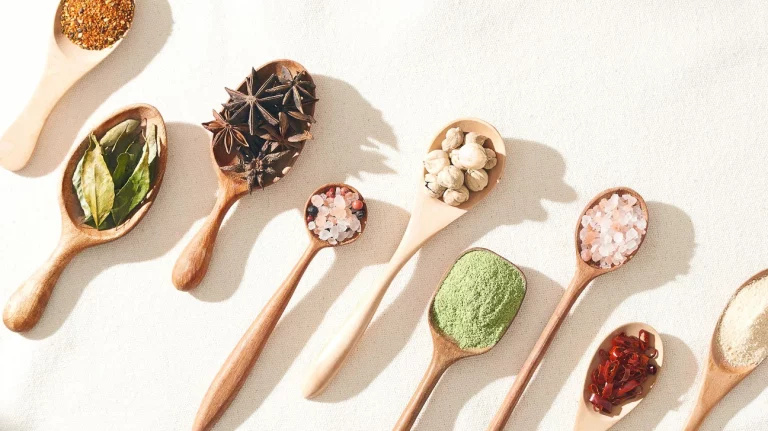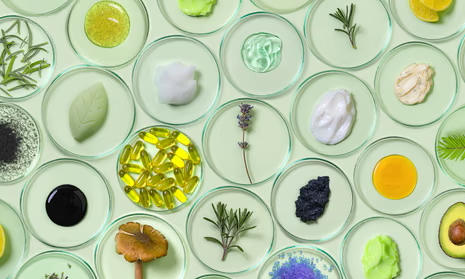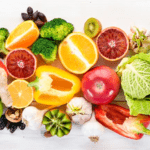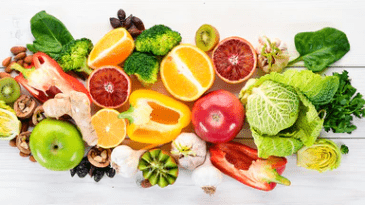- General
- Updated on November 4, 2025
Food Is Medicine: How Everyday Ingredients Can Heal Your Body Naturally

Introduction
We often think of medicine as something that comes from a pharmacy — pills, prescriptions, and packaged remedies. But nature has always had its own pharmacy, and it’s right in our kitchens. The idea that food is medicine isn’t new; it’s an ancient truth rediscovered by modern science. From vibrant fruits and herbs to nuts, seeds, and spices, the food we eat has the power to nourish, repair, and even protect our bodies from disease.
The Philosophy Behind “Food Is Medicine”

Thousands of years before modern medicine, ancient civilizations understood the connection between diet and health. Hippocrates, the father of Western medicine, famously said, “Let food be thy medicine, and medicine be thy food.” In Ayurveda and Traditional Chinese Medicine, this principle runs deep — food isn’t just fuel; it’s the foundation of balance and healing.
Today, science is catching up. Research shows that chronic illnesses such as heart disease, diabetes, and inflammation often have dietary roots. By choosing whole, nutrient-rich foods over processed alternatives, we can activate the body’s natural ability to heal and thrive.
The Healing Power of Everyday Ingredients
You don’t need exotic superfoods or expensive supplements to support your health. Many of the most powerful healing foods are already in your pantry.
1. Garlic – Nature’s Antibiotic
Garlic has been revered for centuries for its immune-boosting and antibacterial properties. It contains allicin, a compound known to fight infections and reduce inflammation. Regular consumption of garlic can help lower blood pressure, improve cholesterol levels, and strengthen the immune system.
2. Ginger – The Ultimate Digestive Healer
Ginger is a powerhouse for gut health. It aids digestion, reduces nausea, and helps fight inflammation throughout the body. Its natural compounds, like gingerol, have been shown to soothe sore muscles and promote better circulation — making it a must-have in any healing diet.
3. Turmeric – The Golden Anti-Inflammatory
Turmeric’s active compound, curcumin, has been widely studied for its potent anti-inflammatory and antioxidant properties. It supports joint health, boosts brain function, and may even reduce the risk of chronic diseases. For better absorption, pair turmeric with black pepper and healthy fats like olive oil or coconut oil.
4. Leafy Greens – Detoxifiers and Cell Protectors
Spinach, kale, and other dark leafy greens are loaded with vitamins A, C, and K, as well as iron and magnesium. They help detoxify the body, support liver function, and strengthen the immune system. Their antioxidants combat free radicals — molecules that cause cellular damage and aging.
5. Berries – Tiny Fruits with Massive Benefits
Blueberries, strawberries, and raspberries are rich in polyphenols and anthocyanins, compounds that fight oxidative stress and inflammation. These colorful fruits protect brain health, improve heart function, and may even slow cognitive decline.
6. Honey – Nature’s Liquid Gold
Raw honey is more than a natural sweetener. It has antimicrobial properties, supports digestion, and soothes sore throats. When used in moderation, honey also helps balance blood sugar and serves as a gentle energy booster.
7. Nuts and Seeds – Small but Mighty Nutrient Powerhouses
Almonds, walnuts, chia, and flaxseeds provide essential fatty acids, protein, and fiber. They support brain health, reduce bad cholesterol, and keep you feeling full longer. Omega-3 fatty acids in these foods are known to protect heart and joint health.
8. Green Tea – The Ancient Elixir of Wellness
Packed with catechins and antioxidants, green tea supports metabolism, brain function, and fat oxidation. It’s also known to protect cells from damage and enhance mental clarity — no wonder it’s a daily ritual in so many cultures.
How Food Promotes Natural Healing
Food doesn’t just fill us up — it sends biochemical signals that influence how our body functions. Nutrients in whole foods activate pathways that reduce inflammation, balance hormones, and support cellular repair. For instance:
- Antioxidants protect cells from damage.
- Healthy fats nourish the brain and reduce inflammation.
- Fiber supports gut health, which affects mood and immunity.
- Phytonutrients from plants help prevent chronic diseases.
By eating with intention, we can shift from a state of imbalance to one of vitality.
Modern Science Confirms Ancient Wisdom
Research continues to validate what traditional wisdom has taught for centuries: the foods we eat can either cause disease or prevent it. For example:
- Diets high in processed sugar and trans fats contribute to inflammation — the root cause of many chronic illnesses.
- Whole foods rich in antioxidants, fiber, and omega-3s counteract these effects.
- Plant-based diets have been linked to lower risks of heart disease, cancer, and diabetes.
Even the gut microbiome — our internal ecosystem — depends on diet. A diverse, fiber-rich diet fosters good bacteria that influence digestion, mood, and immunity.
Building a Healing Plate: Where to Start
You don’t have to overhaul your diet overnight. Small, consistent changes lead to lasting results. Try these steps to start turning your meals into medicine:
- Prioritize Whole Foods: Choose fresh fruits, vegetables, and whole grains over packaged items.
- Balance Your Plate: Combine lean proteins, healthy fats, and fiber-rich carbs at each meal.
- Cook with Healing Spices: Use turmeric, ginger, cinnamon, and garlic regularly.
- Hydrate Wisely: Replace sugary drinks with water, herbal tea, or infused water.
- Eat Mindfully: Slow down and savor your meals — digestion begins in the mind.
When you treat food as nourishment rather than just calories, every bite becomes an act of self-care.
Food as Preventive Medicine
The best way to treat illness is to prevent it. Studies show that 80% of chronic diseases are preventable through lifestyle changes, with diet being the most influential factor. By eating nutrient-dense foods, you give your body the tools it needs to fight infection, repair damage, and stay resilient.
It’s not about restriction — it’s about reconnection: to nature, to your body, and to the wisdom of eating with purpose.
Also Read: Air-Fried vs Deep-Fried: Which Indian Snacks Are Better for You?
Final Thoughts
“Food is medicine” isn’t a trend — it’s a timeless truth that bridges ancient tradition and modern science. The path to wellness doesn’t always begin with a prescription; sometimes, it begins with a plate of real, whole food.
So next time you open your fridge, remember: you’re not just feeding your hunger — you’re fueling your healing.
Join the discussion
Related Articles
No results available
ResetTrending Articles


- General
- Updated on March 2, 2026


- General
- Updated on February 26, 2026


- General
- Updated on February 23, 2026


- General
- Updated on February 20, 2026


- General
- Updated on February 18, 2026


- General
- Updated on February 17, 2026


- General
- Updated on February 10, 2026


- General
- Updated on February 14, 2026


- General
- Updated on February 7, 2026


- General
- Updated on February 5, 2026
No results available
Reset


